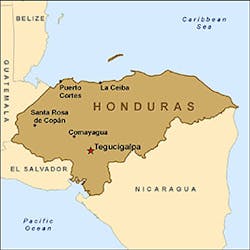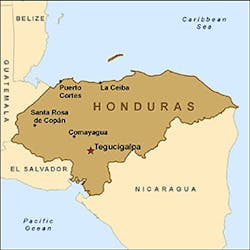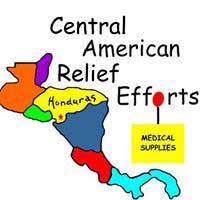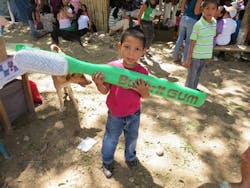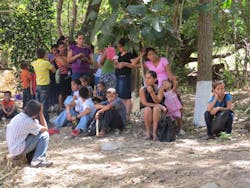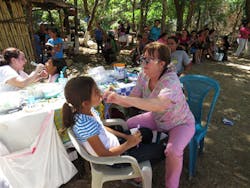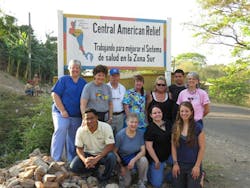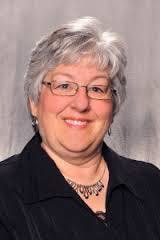The countdown to Honduras ... 3, 2, 1!
Carol Martin, along with her dedicated group of colleagues, is headed for the Republic of Honduras. By now they are there!
They were due to arrive in Tegucigalpa, the capital of Honduras and seat of government of the Republic, the week of Feb. 17. Honduras is bordered to the west by Guatemala, southwest by El Salvador, and southeast by Nicaragua, and south by the Pacific Ocean at the Gulf of Fonseca, and to the north by the Gulf of Honduras, a large inlet of the Caribbean Sea.
The team is a part of the Central American Relief Efforts (C.A.R.E.) group, which mobilizes volunteers and humanitarian aid in the United States to benefit populations in abject poverty in areas of Central America.(1) February is the dry season, with temperatures about 90 degrees F in the day to 60-80 degrees F at night.
The group has a tentative schedule. Tentative because, according to Carol, “When in Honduras, work on Honduras time.” The schedule will be set upon arrival. Kristi (CARE’s Trip Coordinator) contacted the Mayors from the four municipalities the group will be visiting, and advised them they should have a venue large enough to see a minimum of 500 children per day. The municipalities they will visit are: Quebrachal Choluteca, scheduled for Feb. 17; San Isidro on Feb. 18; San Antonio de Flores on Feb. 19; and San Jose on Feb. 20.
A Honduran Child
Carol has asked for prayers and good thoughts as she leads the group and organizes the clinic days, field trips, and other parts of the trip. Carol is hoping for unity as the volunteers develop new relationships with Honduras, the children and other inhabitants, and each other.
Carol Martin, BSDH, PHDHP
C.A.R.E. travels on week-long mission trips with volunteer groups year-round. They work with high school groups, college groups, professional groups, and others. To learn more about their work zone, view the videos on their site. C.A.R.E. is aware of security concerns when working in foreign countries. They have been established in their work zone for nearly 10 years and have built strong relationships with the communities in which they work. There are armed security personnel with the group 24 hours a day. As needed, uniformed police accompany the group for safety.
Thanks to Carol and her team for providing much needed oral health care to the residents of Honduras!
Editor’s note: The letters after Carol’s name, PHDHP, stand for Public Health Dental Hygiene Practitioner, in Pennsylvania. A public health dental hygiene practitioner may perform dental hygiene services without the supervision of a dentist in specific settings. Special requirements: Hygienist must have 3,600 hours experience and liability insurance. Hygienist must also complete 5 hours of continuing education in public health during each licensure period. Services: Hygienist can provide educational, preventive, therapeutic, and intra-oral services, including complete prophylaxis and sealants, dental hygienists in the state are authorized to provide.(4) Carol has given permission to share her contact information.(5)
